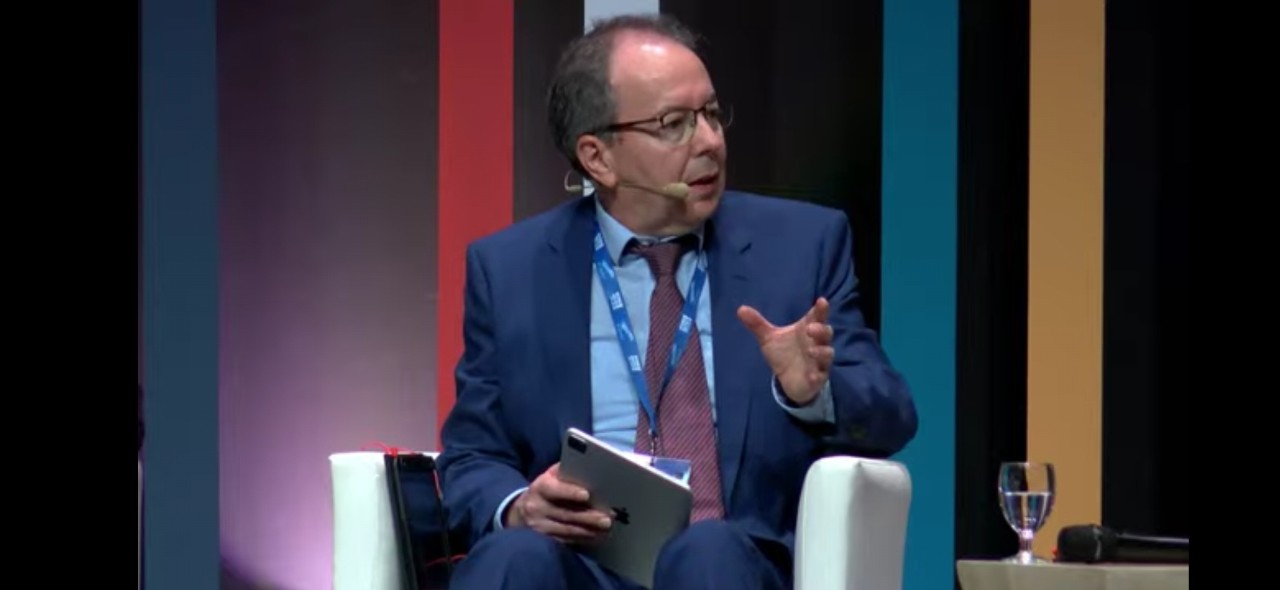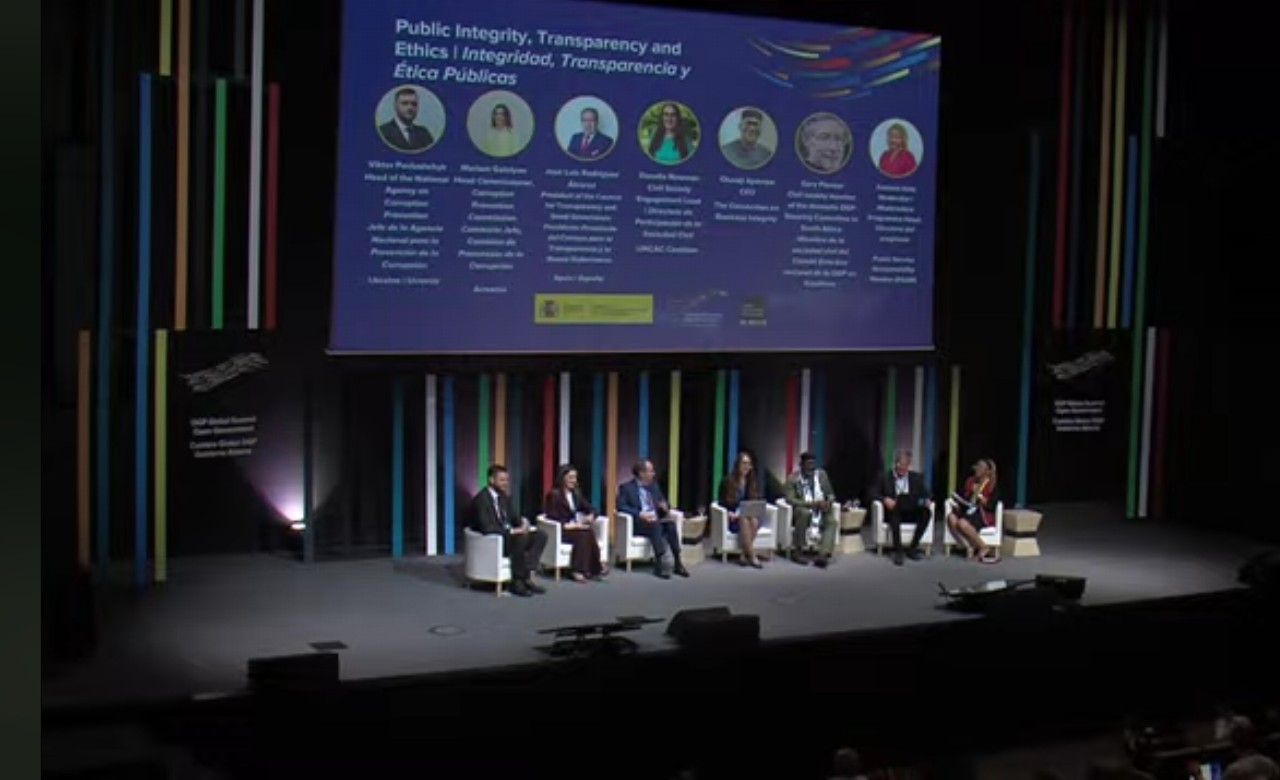The President of the Council, José Luis Rodríguez Álvarez, has spoken today in the IX Global Open Government Partnership Summit, which brings together in the Basque capital more than 2,000 government representatives, civil society leaders and public policy experts to exchange experiences and promote improvements in open government initiatives.
At this important international meeting, he stressed that access to public information is essential to enable the effective participation of people and social groups in public affairs. “It is a necessary condition that acquires even greater relevance in the current context of the proliferation of disinformation, which must be combated with verified and reliable public information,” he stressed.
Rodríguez participated in the high-level panel “Integrity, transparency and public ethics”, together with public officials and civil society organizations from several countries, to discuss the progress made in these key areas to promote public confidence, ensure accountability and combat corruption. He recalled that “illicit practices nest and grow in spaces of opacity” and stressed that transparency “limits the opportunities of corruption and irregular practices and contributes to generating decision-making environments presided over by integrity and ethics.”
To ensure transparency, he stressed, it is essential that there are independent bodies such as the Transparency Council, which ensure that transparency obligations are met and which guarantee the right of access to public information through a flexible and free procedure, at no cost to the claimants.
In this regard, he highlighted the role played by the Council, despite being an institution still young and with few resources, to help strengthen the scrutiny of public activity and thus improve the possibilities of participation of citizens in public life. In 2024 alone, the Council assessed compliance with the transparency obligations of 291 agencies and entities and resolved 2,230 complaints from individuals who had been denied the right of access to public information by the Administration, 65 per cent of which the Council decided in favour of the claimant.
In Spain, he recalled, there are civil society organizations that are very active and try to advance the right of access to public information, and when they do not get a positive response from the Administration to their requests for information, they seek the protection of the Transparency Council.
On the panel, moderated by Zukiswa Kota, Program Manager of the South African Public Service Accountability Observatory, also participated Viktor Pavlushchyk, director of the National Agency for the Prevention of Corruption of Ukraine; Mariam Galstyan, Chief Commissioner of the Commission for the Prevention of Corruption of Armenia; Olusoji Apampa, executive director of The Convention on Business Integrity; Danella NewmanHead of Civil Society Participation Projects in the UNCAC Coalition (United Nations Convention against Corruption); and Gary Pienaar, member of civil society of the OGP Steering Committee in South Africa.
- See the panel video (starts at minute 39 of the video)


